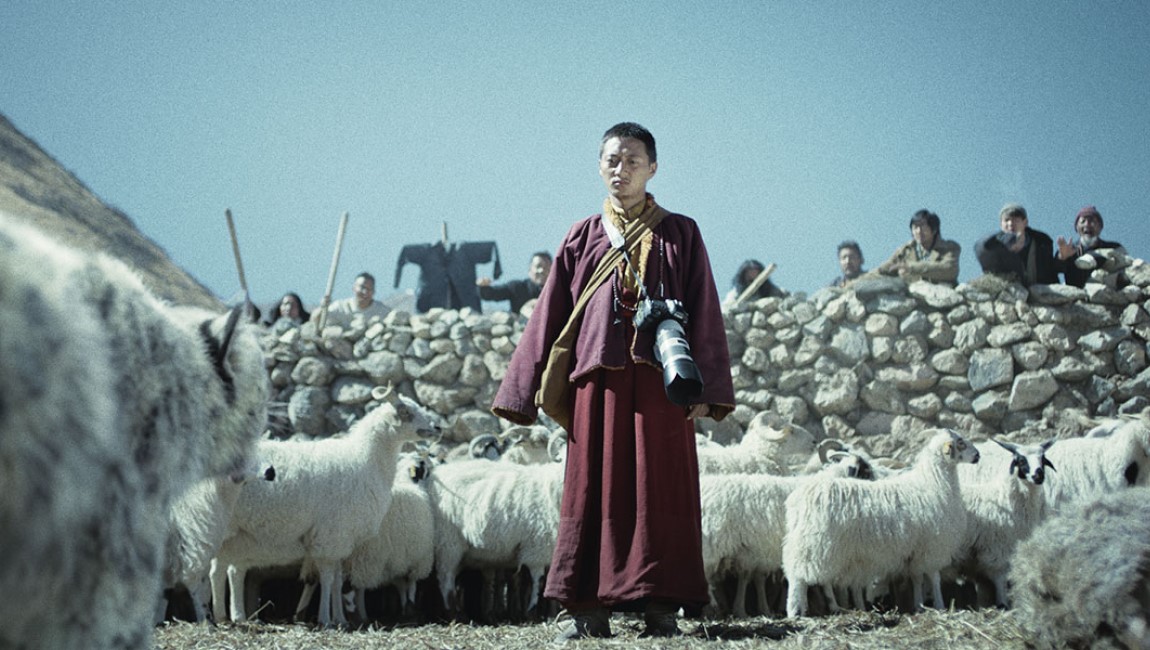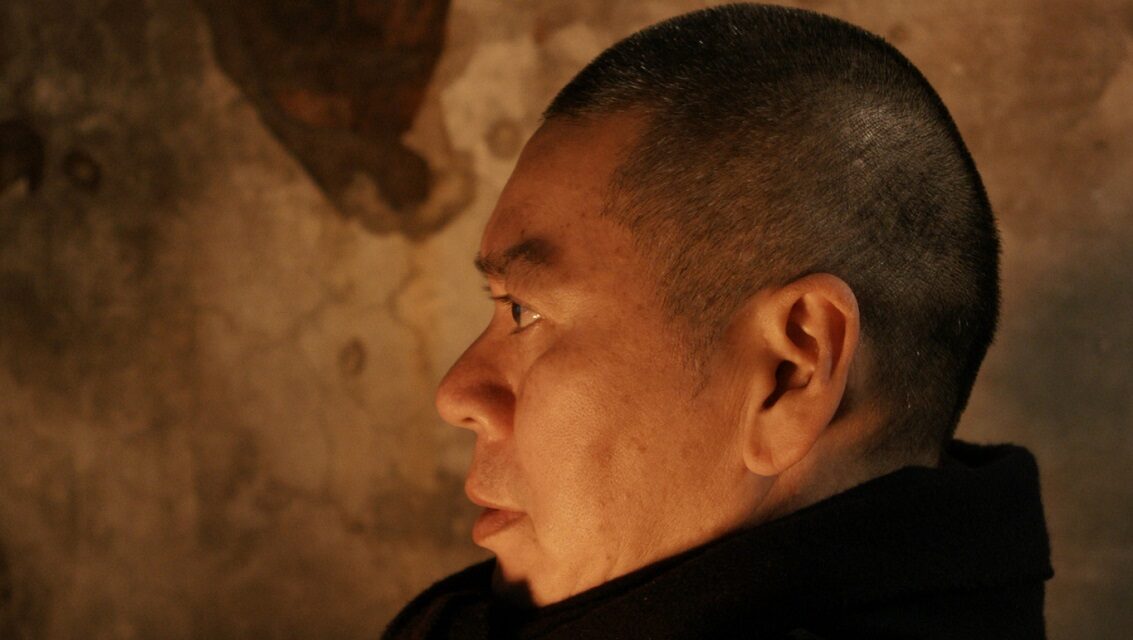The late Chinese, Tibetan minority filmmaker Pema Tseden is no stranger to the Western international film festival circuit (which is also the case for many other films of similar ethnic specificity from the Middle Kingdom). This writer has enjoyed the opportunity to cover various prior films of this type within the setting, from Pema’s own Jinpa (2019 NYAFF) to the Inner Mongolia-set Anima (2021 NYAFF), and Snow Leopard — which received its North American premiere at this year’s TIFF — sits comfortably within the genre-specific framework that has established itself over time around the Chinese minority cinema model of production.
Pema Tseden, the first filmmaker of Tibetan ethnicity to graduate from the Beijing Film Academy, is in every sense a loss to domestic cinema of China, having worked steadily to promote the language, religious orientation, and socio-cultural mores of his minority within the country’s artistic landscape. In contrast to famed Tibetan-focused, Han-majority made films such as Tian Zhuangzhuang’s The Horse Thief, wonderful as it is, the attentiveness of non-Han minds and hands crafting this world and life for screen has long been of a sadly underseen but quite necessary input; which mid-2000s policies pleasantly began to encourage and commendably came more greatly to the fore in the 2010s.
Snow Leopard, in line with Pema Tseden’s prior Balloon and Jinpa, among others, takes for its interests a commentary on Buddhist religious postures toward nature and bureaucratic and legal indifference for the fallout of animal protection policies on the lives of everyday people. The central dilemma is, unsurprisingly, centered around the titular big cat, one of which has broken into and found itself caught in a farming family’s sheep enclosure and, in a frenzy, killed nine rams. Within the family, two brothers lead the discussions over the fate of the animal. One, Jinpa (played by actor of the same name, Jinpa), insists on its death; the other, frequently referred to by his nickname the Snow Leopard Monk (Tseten Tashi), is adamant on its release. Throughout all this, a film crew is present and capturing the events in a muted, meta-textual manner, alongside a litany of local government and police officials who arrive to enforce release on the basis of law, meeting protest from Jinpa as he demands upfront compensation.
The sum all of this is somewhat ruminative and likely of curiosity for those interested in this trend of Mainland Chinese cinema, not least for the discursive approach it takes regarding environmental and legal ethoses and applications. However, in comparison to other entries within the model, and even those by the director himself, it struggles for a sense of motivated purpose beyond the notes it needs to hit — and even those fail to quite coalesce into a proper sense of identity owing to an undercooked script and the limits of location that provincializes the drama to such an extent that it risks inconsequentiality. Despite this, the film demonstrates its most powerful and unique touches in the stretches that explore the unlikely connection between the monk and the titular leopard. The effect here matches the power of Pema’s strongest moments in unlocking and presenting religious theory in visual language. However, unlike Jinpa‘s fusion of such things in a captivating genre mode, Snow Leopard is less capable of sustaining this due to the aforementioned pre-production limitations.
Nevertheless, Pema Tseden’s loss will be felt heavily within Chinese cinema going forward, yet his passing may not be yet mourned too heavily owing to, firstly, information suggesting that perhaps two other features were or are at varying stages of production still; while, secondly, the Buddhist outlook forwarded in his work underlines the samsaric cycle that may well take him and return him to the world in another life of some kind. With that said, as film viewers, there is every reason to be thankful for the works of the director that we have, and while Snow Leopard stands by no mean as a summative work, it’s in every sense an emblematic one, and every strength that need be seen is present for those who wish to offer this work attention.
Published as part of TIFF 2023 — Dispatch 4.







